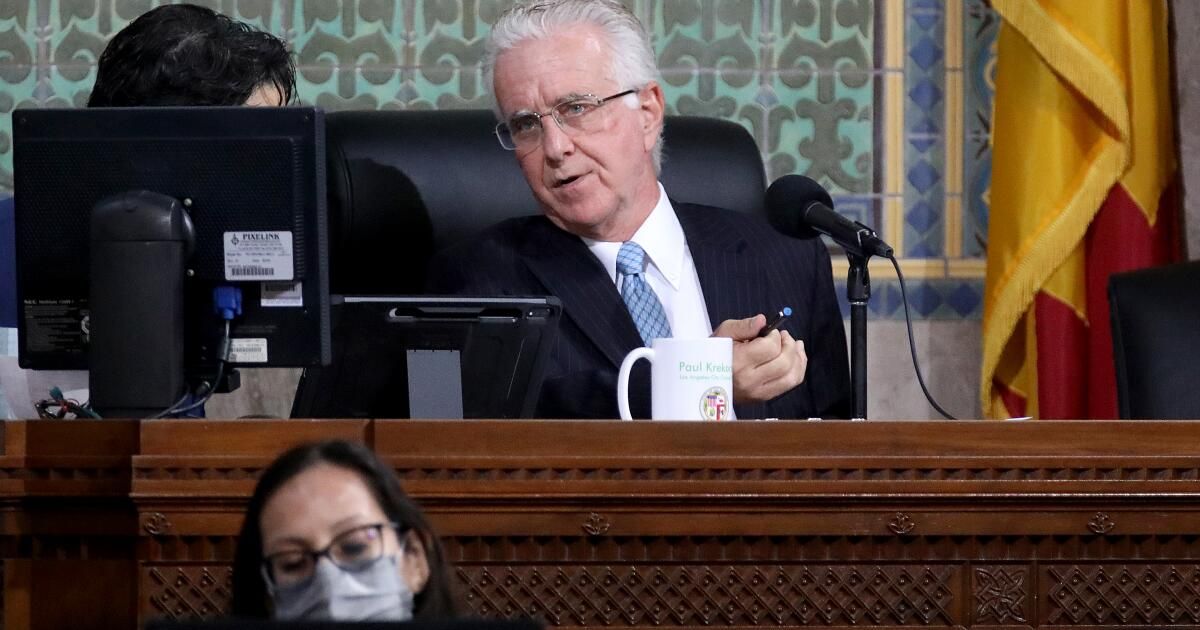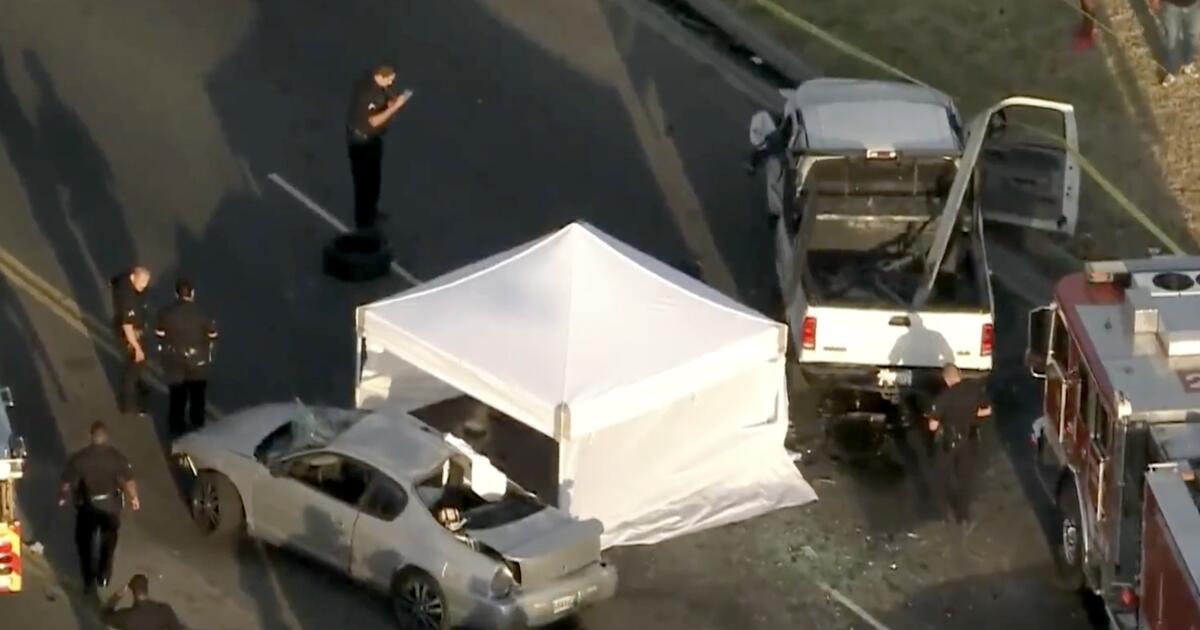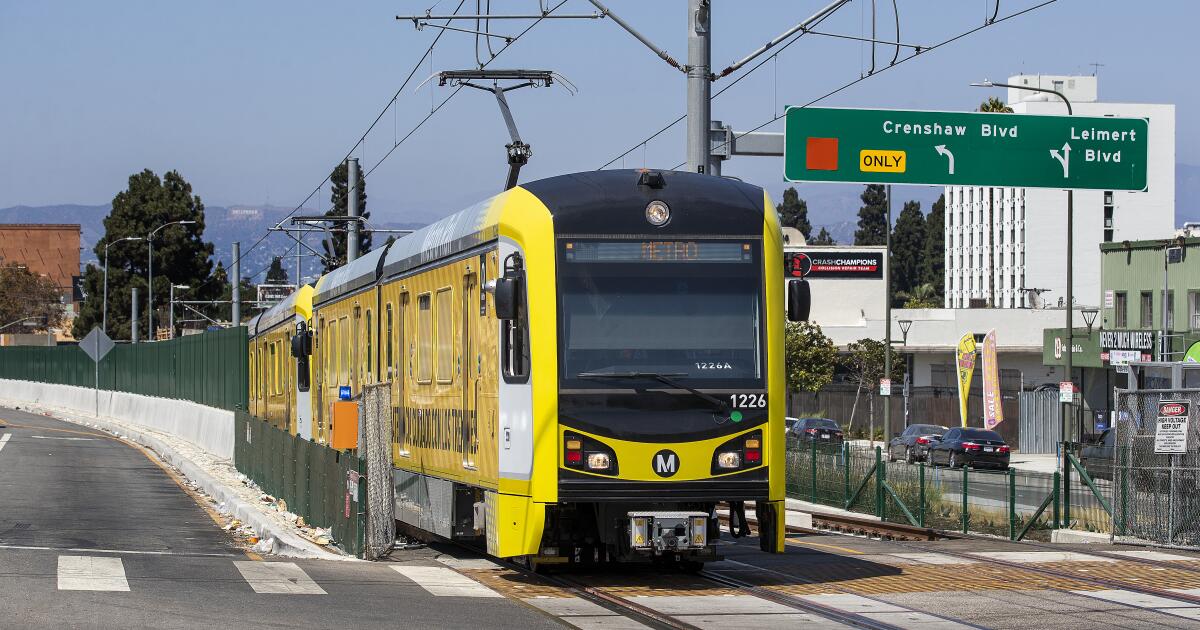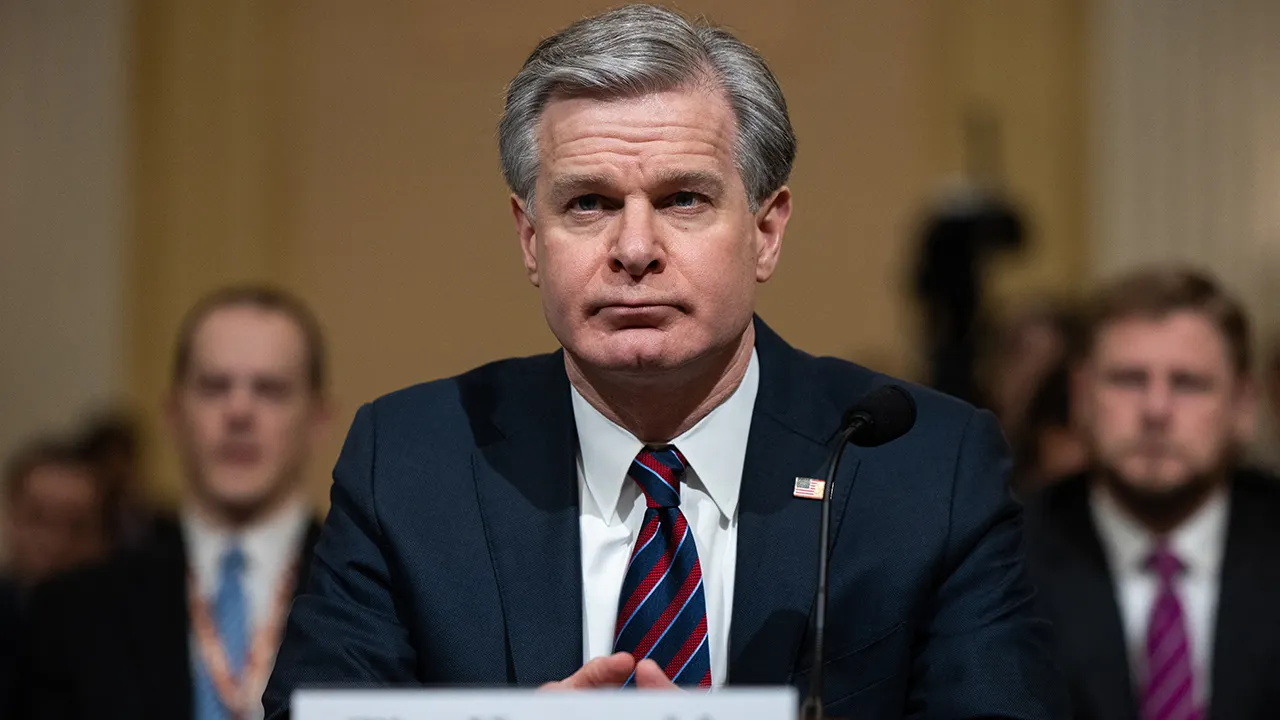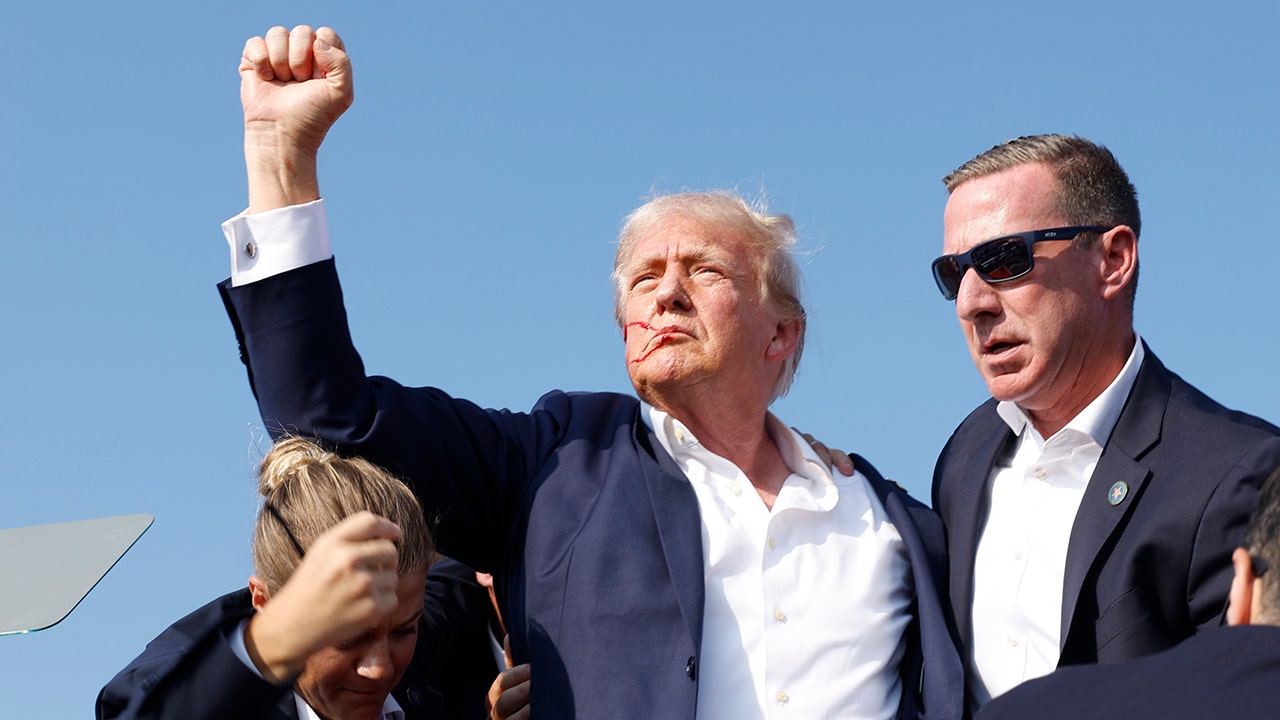The Los Angeles City Council voted Tuesday to create a new citizens commission to discuss expanding the size of the council, reducing the number of council meetings and other possible changes to city operations.
The 13-member commission will be tasked with developing proposals for the November 2026 ballot that would revise the City Charter, which details the powers and duties of city departments, offices and elected officials.
The idea of expanding the 15-member council has been circulating for a few years, and several council members have come on board with the idea. Council President Paul Krekorian had hoped to send a council expansion measure to Los Angeles voters in November.
Although a council committee studied the concept for several months, its members never coalesced around a single strategy, leaving the issue to the new commission.
The council expansion had garnered support from several civic groups, who argued it would improve community representation at City Hall and diversify council membership.
Godfrey Plata, deputy director of the nonprofit group LA Forward, said his organization and others were disappointed by the council's lack of action.
“We thought it was procrastination to hand it over to a charter commission,” said Plata, whose group advocated last year to increase the council to 29 members. “But we're certainly eager to continue a public conversation about it.”
Krekorian, who faces term limits at the end of the year, has continued to argue in favor of expansion, noting that the city of nearly 4 million people has the same number of districts as it did nearly a century ago, when its population was much minor.
Reducing the size of each district would make the council more responsive to residents, he said, while reducing the influence of “organized institutional money” in elections.
“I think it even reduces the risk of corruption,” Krekorian said last week during an appearance at the Los Angeles Current Affairs Forum.
Krekorian said the new charter reform commission will also examine other issues, including the city's handling of real estate development, the process of filling vacant council seats and the procedure for censuring or suspending elected officials. have committed irregularities.
Michael Feinstein, speaking on behalf of the Los Angeles County Green Party, asked the council to ensure the commission also looks at major changes to city elections, including a move to “ranked-choice” voting, which allows voters to rank candidates in order of preference instead of choosing just one.
The last major overhaul of the city charter was in 1999. That year, voters established a neighborhood council system and gave more authority to the mayor, among other things. In that same vote, voters rejected efforts to expand the council.
This time, it's unclear how broad the commission's work will be. While the council can submit topics for study, the commission will also gather input from a wide range of individuals and community groups.
Under the plan approved Tuesday, Mayor Karen Bass will have the power to appoint four of the commission's 13 members. Krekorian will select two, as will Council President-elect Marqueece Harris-Dawson.
Those eight would be named in August and September, according to a schedule created for the commission. Once they meet, they would spend three months developing a work plan and selecting five additional commissioners.
The commission's schedule calls for it to spend much of 2025 deliberating and gathering public input. In January 2026, their proposals would be presented to the council, which would then decide which ones would appear on the November 2026 ballot.
Feinstein, the former mayor of Santa Monica, criticized that agreement and warned that the council will have the power to reject any of the commission's proposals. He also blamed the council for allowing the commission to be staffed by political appointees.
“This [process] involves a direct conflict of interest for the City Council over the decision on the size and future powers of the council,” he said in an email to The Times.
The charter reform commission is also expected to consider reducing the number of council meetings, an issue that has exasperated some council members in recent months.
The City Charter requires that the council meet at least three days a week. Council members Katy Yaroslasvky, Tim McOsker and Eunisses Hernandez recently backed a ballot proposal to reduce that number to one day a week. But other council members resisted the idea, saying it needed investigation by the soon-to-be-formed commission.
Separately, the council voted Tuesday to approve the text of two city charter amendments on the Nov. 5 ballot. One would establish an independent redistricting process for the Los Angeles Unified School District, which spans 26 cities and is governed by a seven-member board.
The other ballot proposal aims to strengthen the city's Ethics Commission, which enforces laws related to campaign fundraising, lobbying and other political activities. Under the proposal, the agency would receive a minimum of $7 million a year for its operations.
Supporters say this would prevent elected officials from retaliating against the agency by cutting its budget. The proposal would also triple fines for ethics violations and give the Ethics Commission the ability to hire its own attorney in some cases.

